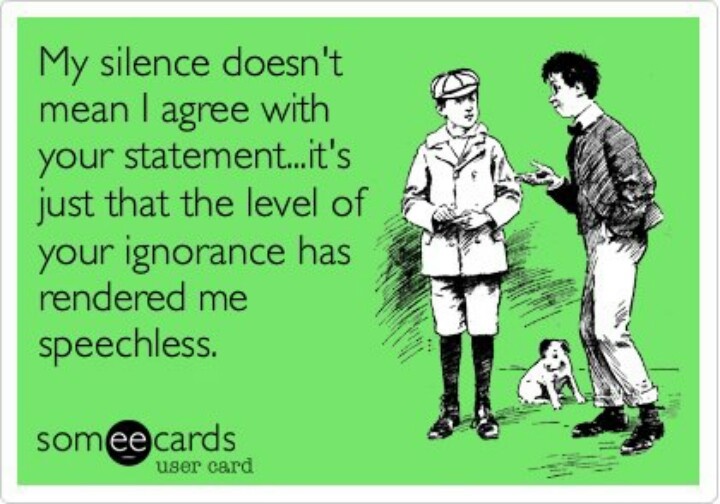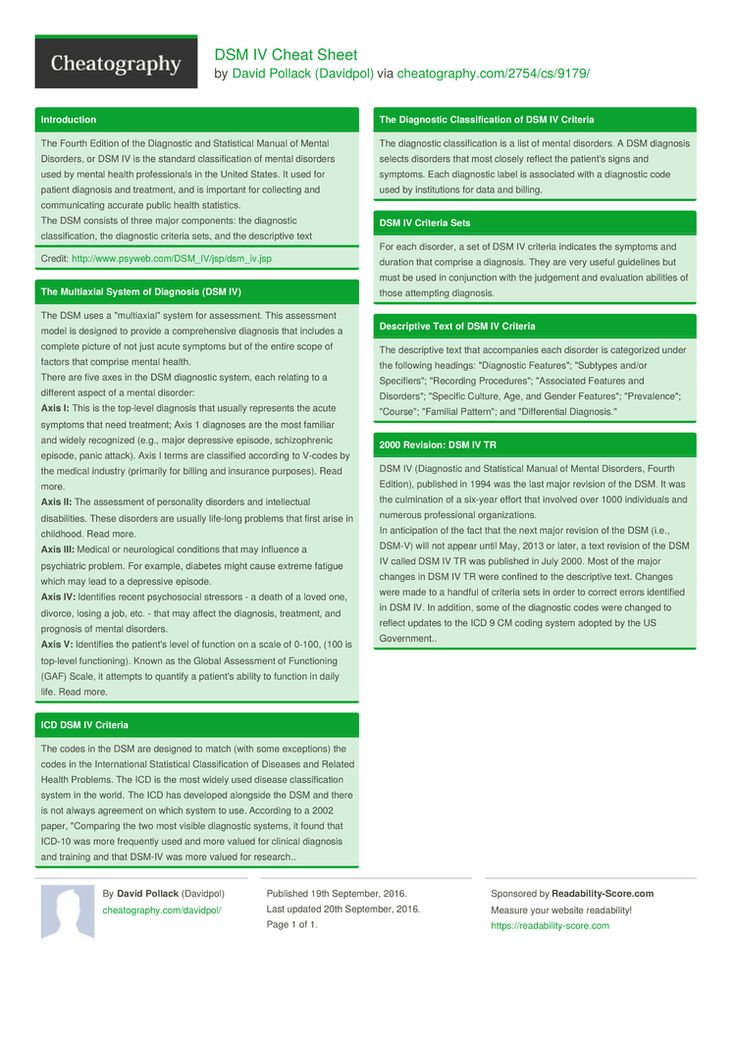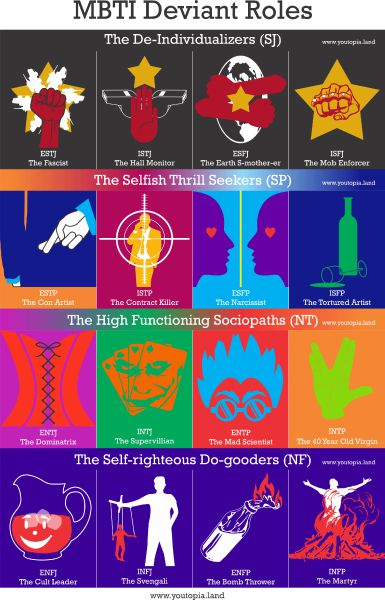Why do we get angry for no reason
WHEN YOU FEEL ANGRY AND DON’T KNOW WHY | 5 REASONS WHY YOU’RE FEELING ANGRY
Sometimes it’s clear why we feel angry, but a lot of the time, we react angrily to something and later think, “Why did I get so mad?” Maybe you feel angry all the time or feel angry for no reason. Or maybe you’re noticing an undercurrent of anger and resentment in your day-to-day life or that you seem to get mad way too easily. I’m going to go out on a limb and say this: if you’re noticing that you’re feeling anger, resentment and frustration on a daily basis, there’s something you need to fix. Today I’m going to teach you the five real reasons you’re feeling angry so you can make some real changes.
First things first, anger is a healthy emotion! Anger can be motivating and a reasonable response to a threat to your physical well-being. However, anger should dissipate once the threat is gone. If you feel angry again days or years after an event, you’re feeling resentful. “Re” at the beginning of a word means “again,” so you’re literally re-sensing or re-feeling something (in this case anger).
7-minute read
Prefer to listen to the podcast? Click here!
“Anger can be a lot like alcohol: too much of it can become addictive and ruin your life.”- Dr. Robert Enright
So again, if you feel angry, resentful or frustrated on the daily, then there’s definitely something else going on that you need to uncover! For example, if everything your mom says to you feels like an attack or if you often notice that the level of your angry response doesn’t fit the situation, it’s time to stop, take stock and figure out what’s really going on.
The Five Real Reasons You Feel Angry1. You Feel Angry Because You’re AfraidI’m always quoting author Celeste Ng who said, “Anger is the bodyguard of fear.” When you’re feeling anger or resentment, ask yourself these two questions:
- What else am I feeling right now? What’s below this anger?
- What am I really afraid of?
We’re afraid of all kinds of things but they generally boil down to our fear of abandonment and rejection, which are age-old hard-wired fears that we need to identify so we can stop reacting to them. We’re ultimately afraid that our partners are going to leave us and that we’ll be alone.
We’re ultimately afraid that our partners are going to leave us and that we’ll be alone.
When you’re angry at something, you’re really saying you fear it or your reaction to it. If you hate your ex, you’re saying you fear them or your reaction to them.
2. You Feel Angry Because You Have Poor BoundariesPoor boundaries are at the heart of just about every angry, resentful or frustrated feeling you have and there are a few ways poor boundaries show up. Maybe you’re saying “yes” to things when you really want to say “no!” Maybe you feel like you have to do things for family, friends or at work so you’re acting like a victim or allowing yourself to be treated poorly.
When you’re a people pleaser you’re left feeling mentally and physically exhausted and then resent those that are “making you feel that way.” It’s not anyone else’s job to keep your boundaries. That’s your job!
When someone doesn’t respect your boundaries, it’s up to you to make sure you follow through with an appropriate response or consequence. If you’re blaming others for making you feel a certain way, you’ve got yourself some crappy boundaries and it’s time to get clear on your standards and hold those boundaries steady.
If you’re blaming others for making you feel a certain way, you’ve got yourself some crappy boundaries and it’s time to get clear on your standards and hold those boundaries steady.
Another way your poor boundaries are showing up is if you think that the only way others listen to you is if you lose your shit. Nope. Those are your crappy boundaries again. It’s not about them listening to you, it’s about you listening to you, holding your boundary and having a consequence for people who don’t respect it.
Yet another way these bad boundaries show up is in being a martyr in any way. You end up rationalizing: “I can’t take time off work because then I just have twice as much when I get back.” Or “Between taking care of the kids and my mom I don’t have any time for myself or self-care.” Yep… it’s this kind of stuff that feeds leads us to feel angry all the time or feel angry for no reason (it seems!).
3. You Feel Angry Due to an Underlying Mental Health IssueAnger, frustration and overwhelm are often signs of either undiagnosed or undertreated mental health issues. Angry outbursts are one of the key signs of depression that often get missed since people think of depressed folks as being quiet and not saying anything.
Angry outbursts are one of the key signs of depression that often get missed since people think of depressed folks as being quiet and not saying anything.
If you have anxiety, it’s easy to feel overwhelmed and then lash out at others. One of the symptoms of a substance abuse problem can also be lower frustration tolerance (I see this a lot with people who smoke a lot of pot) or angry outbursts.
It’s possible you’ve been diagnosed with one of these conditions but you’re not being treated effectively. This could be the wrong prescription or the wrong dose of a certain medication or that you’re not receiving the right type of counseling for your particular needs.
4. You Feel Angry Because You’re a Control EnthusiastWhen you’re trying to control the world and can’t, it’s easy to get annoyed. Maybe you don’t like how your partner is parenting your kids. Maybe you see a much easier way to do things at work, but no one will listen to you. Maybe you’re asking your kid to clean up after themselves and, once again, they leave the house and there’s still a mess in their room.
I’ve been very open with my own control issue struggles and I need to tell you that you’ve got to give up trying to control the world if you want to be happy. It’s time for some loving detachment and looking at why you feel this need to control situations and others. Once again, you’ll ask yourself those questions from earlier:
- What else am I feeling right now? What’s below this anger and need to control?
- What am I really afraid of?
Learning to deal with your control issues is paramount to finding peace and emotional regulation in your life and to help you not feel angry all the time or feel angry for no reason.
5. You Feel Angry Because You’re Masking GuiltLastly, you might feel angry at someone but don’t feel like you have permission to feel angry, so it’s coming out as displaced anger. For example, if your partner is an alcoholic who’s trying to get sober you might find yourself getting very angry at work where you feel more permission to be upset.
Or maybe you were raised by a single mom who worked three jobs but was never there. Intellectually you understand that she was amazing and worked hard to keep you fed and safe, but the kid in you feels abandoned and angry because she wasn’t around when you needed her. You feel guilty or even ashamed that you feel that way so, once again, that anger comes out somewhere else where you feel more permission to be angry. Or maybe you’re angry and resentful with your own kids when they look for more and more of your time.
“Holding onto anger is like grasping a hot coal with the intent of throwing it at someone; it’s you who gets burned.” – The BuddhaWrap UpLearning why you feel angry and what it’s truly covering up is the first step in moving forward to a healthier emotional life. But there’s other work to do. Next week, we’re going to be talking with Dr. Robert Enright about his incredible work with forgiveness. Since the first step in forgiving anyone is recognizing that you’re angry, you’re off to a great start. Join me next week with the man Time magazine called, “The Forgiveness Trailblazer” and learn this next step in moving on from your anger and resentment and stop feeling angry all the time or angry for no reason.
Join me next week with the man Time magazine called, “The Forgiveness Trailblazer” and learn this next step in moving on from your anger and resentment and stop feeling angry all the time or angry for no reason.
Boundaries: How to Identify Them and How to Hold Them
The Secret to Making Boundaries Not Walls
How to Say “No” and Stick to It
VIDEO: How to Say “No” and Stick to It
Your People Pleasing Might Be a Trauma Response
Loving Detachment
3 Steps to Loving Detachment
You’ve Got to Have High Standards and Low Expectations
What to Do If My Partner is Depressed (and How to Know If They’re Just Sad
What Anxiety Really Is and How to Deal with It
What to Do When Someone You Love is Struggling with Drugs and Alcohol
How to Deal with Your Control Issues
Ready to find out what goes on inside that crazy mind of Abby’s?Angry For No Reason? 11 Common Causes Of Rage Attacks
Self
Seeing red? Here's what may be behind it.
by Suzannah Weiss and Carolyn Steber
Updated:
Originally Published:
LukaTDB/E+/Getty Images
Whether you catch yourself clenching your fists, screaming into a pillow, or blaring your car horn at someone on a Tuesday afternoon, there’s nothing fun about sudden, intense bursts of rage. While it’s common to experience moments of annoyance, irritation, and even anger when something goes wrong, feeling mad for no reason can certainly come as a shock.
It doesn’t, however, make you a bad person. “It is common to classify emotions into categories such as ‘good emotions’ like happiness, joy, love, or ‘bad emotions’ like anxiety, sadness, and anger,” Lori Ryland, Ph.D., LP, a licensed clinical psychologist, tells Bustle. “The truth is emotions themselves are not bad or good. ”
”
Anger is often a side effect of something else entirely — like fatigue or hunger — or a very useful way for your body and mind to tell you something’s wrong. Other times, rage fits can be accompanied by anxiety and feel a bit like panic attacks, Dr. Richard C. Shelton, M.D., a psychiatry professor at the University of Alabama School of Medicine, tells Bustle. But there’s a common denominator, whatever the case may be: “Whenever we feel an emotion — desired or not — it’s an indication that we’ll probably need to take action and do something in order for us to feel different,” says Christina Harrison, LCSW, a licensed clinical social worker.
That’s when you might realize, “Oh, I haven’t eaten in a couple of hours,” or “Oh, I’m mad because I’m stressed.” That’s why it’s often helpful to do a mental and physical check-in with yourself to figure out what you could shift or change in order to feel better. But if you aren’t sure why you’re suddenly angry, or if it’s an ongoing thing for you, don’t hesitate to reach out for extra support.
“It can be very beneficial to meet with a therapist even for a brief period to learn more about how to identify anger and establish better strategies to reduce it,” Ryland says. “This is particularly critical if your anger leads to aggression of any kind.” Here are 11 common causes of anger that might explain why you’re seeing red.
1
You’re Triggered
If it seems like you feel sudden anger for no reason, it very well may mean you got triggered by something you didn’t even realize was there. In some cases, this could even point to post-traumatic stress disorder, which includes anger as a top symptom.
“Triggers can be as subtle as a smell, an image, or an automatic thought,” Jose Ramirez, LMHC, a licensed mental health counselor, tells Bustle. “If you notice that you are angry for no reason you should pay attention to external and internal factors.” Check in and ask yourself what happened in the moments before you got upset. In this situation, it may help to walk away and give yourself a chance to reset.
Therapy can also come in handy if you think it would help to further unpack your triggers and the trauma that caused them.
2
You Don’t Speak Your Mind
Anger can crop up when you hold your feelings back, too. “[It can occur] when we have expectations that we haven't clearly communicated and something doesn't meet our expectations,” psychotherapist Carrie Torn, LCSW tells Bustle. This can happen with friendships, romantic relationships, family, and even at work. If you tend to go through the day hoping things will go your way, but without ever communicating what you want or need, expect to eventually bubble over with annoyance — or even rage.
3
You Have Depression
FG Trade/E+/Getty Images
Did you know anger and irritability are lesser-known signs of depression? While other symptoms include sadness, loss of interest, appetite changes, tiredness, physical pains, and feeling “slowed down,” you might also notice that you have a super short fuse, pick fights, or feel mad at everyone and everything for no reason.
4
Anxiety Is Taking Over
Anger can also be indicative of underlying anxiety, whether you have an actual anxiety disorder or are experiencing an anxiety-inducing moment. In both cases, anger is a way to release internal tension, according to therapist Karen R. Koenig, M.Ed., LCSW.
Think of the time you snapped at a partner when getting ready for a job interview. You weren’t mad, you were just anxious. The same goes for feeling irritable when you have chronic anxiety. When the body is in a constant state of fear, it’s easy to lash out.
5
You’re Too Stressed
Similarly, anger can spring up seemingly out of nowhere when you’re busy, overwhelmed, and thus super stressed. “Some describe this as a ‘short fuse’ or feeling like they are like a ‘pressure cooker,’” says Ryland of another culprit.
All it takes is the sound of your phone ringing or one too many emails before you blow up. In those moments, Ryland suggests “letting off some steam” by going for a walk or venting to a close friend.
“Another strategy is to ‘turn down the flame,’” she says. “Ways to do this include mindfulness or meditation, taking a personal day to recharge, or engaging in leisure activities and self-care.”
6
You’re Actually Afraid
ViewStock/View Stock/Getty Images
According to Harrison, anger is typically a secondary emotion. “For example, a fairly common way that anger can show up for folx is road rage,” they say. “When we’re driving, we’re minding our own business, following the rules of the road in order to get us to our next destination. Then someone comes along speeding, cuts us off, and forces us to slam on our brakes.”
In this moment, your first emotion is fear: fear of an accident, fear of injuring others, etc. “We create a narrative that the other driver is intentionally being careless, reckless, and inconsiderate,” Harrison says. “Their behavior threatens our well-being, and can possibly hinder our ability to be alive, thus cueing anger. ”
”
This is just an example of how fear can trigger anger. The next time you’re mad for no reason, consider if something startled you or made you feel unsafe, and you very well may have your explanation.
7
You’re Hangry
While this one seems super simplistic, low blood sugar really can make you see red. “We get more irritable if we don’t feel our best,” Natalie Capano, MHC-LP, a counselor, tells Bustle, which is why “hangry” is a word everyone has in their vocabulary. If it’s been hours since you ate, don’t be surprised if you snap.
8
You Stop & Start Antidepressants
praetorianphoto/E+/Getty Images
If bouts of pure fury are taking over your life, consider your medications. While not guaranteed, “rage attacks” are a potential side effect when you stop taking SSRIs, which are a class of medication often used to treat anxiety and depression. It’s one of the many reasons why it’s important to talk with your doctor before going off them.
9
You Have PMS Or PMDD
If you tend to get mad right before your period, that rage-y feeling could be due to PMS or even premenstrual dysphoric disorder (PMDD). Along with anger and irritability, other psychological symptoms of PMDD include anxiety, extreme fatigue, confusion, crying spells, forgetfulness, and trouble sleeping.
Healthy habits like exercising and eating a balanced diet can help curb PMDD, but sometimes psychiatric drugs and hormone therapy are necessary. If you experience rage attacks around your period, don't suffer in silence. Talk to a doctor, especially if it's significantly impacting your life.
10
You’re Uncomfortable
Discomfort — whether it’s due to hot weather, painful shoes, an itchy sweater, or the fact you haven’t had any water today — can be enough to cause irrational anger, too. The best way to fix this type of fury? Take better care of yourself at the moment, as well as going forward.
One way to do so is with the HALT trick: “HALT is an acronym that reminds us to take a pause and check in with ourselves,” Torn says. “It stands for Hungry? Angry? Lonely? Tired?” All of these things can contribute to anger, she says, which is why HALT is a good way to make sure your needs are being met.
“It stands for Hungry? Angry? Lonely? Tired?” All of these things can contribute to anger, she says, which is why HALT is a good way to make sure your needs are being met.
If you’re hungry, have a snack. If you’re angry, take a walk. If you’re lonely, call a friend or family member. And if you’re tired, take a dang nap! (Or, you know, work on improving your sleep schedule so that you don’t get as cranky.)
11
You Have A Mood Disorder
Mood disorders, like bipolar disorder, can cause intense emotional swings that are difficult to regulate, Capano says. The same goes for personality disorders, such as borderline personality disorder, which includes anger and impulsivity among its many symptoms.
If you’re prone to emotional ups and downs, it may help to look for patterns, learn more about your triggers, and then practice ways of regulating them. “Grounding techniques and mindfulness can help,” says Capano. “Have you ever seen a movie where a character splashes frigid water on their face? This can serve as a reset button to hit when you’ve reached your tolerance for frustrating situations. ”
”
Medication may also come to the rescue, as well as outside support. “If you find yourself frequently becoming angry and you can’t identify the cause or seem to control it, therapy might help,” says Capano.
Studies referenced:
Galovski, T. (2014). Changes in Anger in Relationship to Responsivity to PTSD Treatment. Psychol Trauma. https://www.ncbi.nlm.nih.gov/pmc/articles/PMC4100723/
Sahu, A. (2014). Depression is More Than Just Sadness: A Case of Excessive Anger and Its Management in Depression. Indian Journal of Psychological Medicine. https://www.ncbi.nlm.nih.gov/pmc/articles/PMC3959025/
Walsh, L. (2018). The Relationship Between Anger and Anxiety Symptoms in Youth with Anxiety Disorders. J Child Adolesc Couns. https://www.ncbi.nlm.nih.gov/pmc/articles/PMC6392190/
Sources:
Lori Ryland, Ph.D., LP, CAADC, BCBA-D, licensed clinical psychologist
Christina Harrison, LCSW, licensed clinical social worker
Jose Ramirez, LMHC, licensed mental health counselor
Carrie Torn, LCSW, psychotherapist
Karen R. Koenig, M.Ed., LCSW, therapist
Koenig, M.Ed., LCSW, therapist
Dr. Richard C. Shelton, M.D., a psychiatry professor at the University of Alabama School of Medicine
Natalie Capano, MHC-LP, counselor
This article was originally published on
5 reasons for our anger | PSYCHOLOGIES
70 774
Know yourself Listen to your body Man among people
There is no such person who would never be angry with another. We are also on the other side of the barricades: we feel anger on ourselves from other people. This feeling arises when one person experiences discontent arising from resentment.
Anger can be short-term, or it can last a lifetime. And this is a very painful feeling, primarily because we cannot always explain its cause. In addition, anger often leads to the destruction of important relationships.
Some people get angry more often due to temperament and inability to behave in a conflict situation. Many people find it difficult to discuss their feelings with those they are angry with, and we just keep quiet about it. Sometimes we even forget what upset us, but we always remember how we felt. There can be many reasons for anger.
Many people find it difficult to discuss their feelings with those they are angry with, and we just keep quiet about it. Sometimes we even forget what upset us, but we always remember how we felt. There can be many reasons for anger.
1. Misunderstandings and false suspicions
Sometimes it seems to us that someone wishes us harm, although in fact this is not so. If this misunderstanding is not cleared up right away, there may be a feeling that everyone around wishes us harm. We get offended by people who have nothing bad in mind, and we begin to get angry.
2. Unrealistic expectations
We often expect too much from other people. And if they do not live up to our expectations, we are offended, upset and disappointed. Magnanimous people think too well of others and suffer when they are not what they imagined. If you are always ready to help, you may be offended that people do not pay you the same.
3. Feeling abandoned
There are many varieties of this cause: you feel used, ignored and betrayed. You call a friend, and he answers when he needs something from you. You are not invited to a corporate event. Being invisible and even invisible to others is unpleasant.
You call a friend, and he answers when he needs something from you. You are not invited to a corporate event. Being invisible and even invisible to others is unpleasant.
But perhaps the people you resent are under false beliefs. For example, co-workers sincerely believe that you don't like parties and decline the invitation anyway. And your friend might be really busy. That is, your anger can be provoked by several reasons at the same time.
4. Reaching the limit
Communication with some people hurts us, and sooner or later the limit comes - we no longer want and cannot tolerate it. This happens in the relationship of spouses and couples in love, when one person says: "That's it, I've had enough." Sometimes people say that they no longer have the strength to endure their partner's behavior. They feel empty and depleted.
5. Envy
When relationships deteriorate and dissatisfaction increases, envy enters the scene. It would seem that we should rejoice in the successes of loved ones. But for many of us, this is a difficult task.
But for many of us, this is a difficult task.
Sadly, sometimes it is easier to help a person who is suffering than to share the joy with someone who achieves the goal. This is due to our internal problems, and most often it is a matter of low self-esteem.
Think about why you are angry. Think about which of the following reasons affect your life? Understanding the cause will be the first step to getting rid of the destructive feeling of anger.
About the author: Barbara Greenberg is a clinical psychologist specializing in family relationships and parenting.
Text: Alexandra Galimova Photo Source: Getty Images
New on the site
“My husband cheated while drunk and told me about it in detail”
“I hate playing with children. Am I a normal mother?
3 factors of your Tinder profile that will help you increase the number of dates
Four reasons not to be afraid of loneliness
When the client turned out to be a maniac: what are the principles of psychotherapy revealed by the new series "The Patient"
Alert mode: how to cope with anxiety from excessive vigilance
"How to cope with the suicide of a loved one?"
Home care for bedridden patients: expert advice
Why being angry is normal and even useful: psychologist's advice
Being angry is normal. It is this feeling that makes us change the established order of things. If emotions, especially such as aggression and anger, do not go out, but remain inside, a person can get used to them and, as a result, live in stress, blaming everything on work or workload. Natalia Salfetnikova, a psychologist at the Izmailovo Family Center of the Department of Labor and Social Protection of the Population of the City of Moscow, spoke about this in more detail.
It is this feeling that makes us change the established order of things. If emotions, especially such as aggression and anger, do not go out, but remain inside, a person can get used to them and, as a result, live in stress, blaming everything on work or workload. Natalia Salfetnikova, a psychologist at the Izmailovo Family Center of the Department of Labor and Social Protection of the Population of the City of Moscow, spoke about this in more detail.
Understand the cause of anger
It is important to understand what caused the anger. The subject of aggression is often displaced, and many times you will have to ask yourself the questions “What makes me angry about this? What and who am I really angry at?” to find the final answer. Anger is often personal.
When the real object of anger is found, the question arises of what to do - but rather not with anger, but with violation of boundaries, threat or discomfort, which generate anger as a defensive reaction.
Listen to yourself and your feelings — perhaps it is anger that will become the impetus that will help you understand what situations in your life you should pay attention to and where changes are needed.
To show feelings
The Nikulin family turned to the Izmailovo family center. Their 5-year-old son began to show aggression towards his 3-year-old sister: taking away things, pushing, yelling at her. Previously, parents did not notice this, and therefore they were very worried. After all, in their words, they love children equally, and the kids have an equal amount of toys.
After talking with the parents, the psychologist also talked to the boy. It turned out that the child was worried that his father considered him already an adult, and the baby lacked paternal attention and love. The boy was under stress, and he could only take it out on his little sister.
After a consultation with a psychologist, the parents reconsidered their views on communication with children. Dad began to show care and attention to his son. Instead of "high five like a man," he came up and hugged the boy. The child felt better, as he began to feel the love of his father.
Dad began to show care and attention to his son. Instead of "high five like a man," he came up and hugged the boy. The child felt better, as he began to feel the love of his father.
« The worst thing for a child is the loss of parental love and neglect. Often children break something, scream or disobey, not because they are so angry, but because they need your attention. It’s better for mom and dad to scold me than not to notice at all - that’s the thought that provokes them to bad behavior. Your love and attention is a huge resource and value for children. Love your child, help him recognize his feelings, support him , - Natalia thinks.
Why being angry is good for you
- Taking your anger out is a great way to calm down.
When we get angry, our body experiences stress. When the body is under stress, we begin to get angry and want to cope with our negative state more strongly. The manifestation of anger gives us relaxation and allows us to put our nerves in order.
The manifestation of anger gives us relaxation and allows us to put our nerves in order. - Displacement of aggression helps to increase productivity.
Sometimes a moderate display of anger is appropriate in the work process. This is how you make it clear to partners and colleagues that certain problems are more important and require a quick solution. - Anger helps you achieve your goals.
We get angry when we don't get what we really want. Anger shows what goals and objectives are important to us. He also gives energy to overcome obstacles and achieve what you want. - Regular manifestation of negative emotions helps to avoid a nervous breakdown.
Anger is often followed by irritation. The bottom line is that people quit jobs they don’t like, end toxic relationships, finally move out of their parents and do a lot of other things that they wouldn’t dare to do in a calm state. And thanks to this, we manage to avoid the onset of a nervous breakdown.














